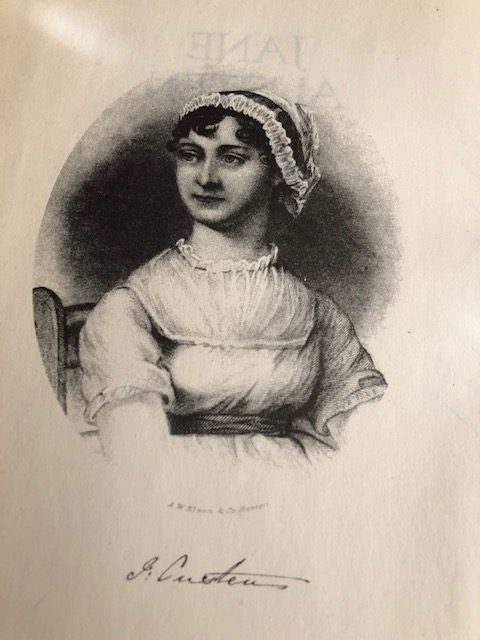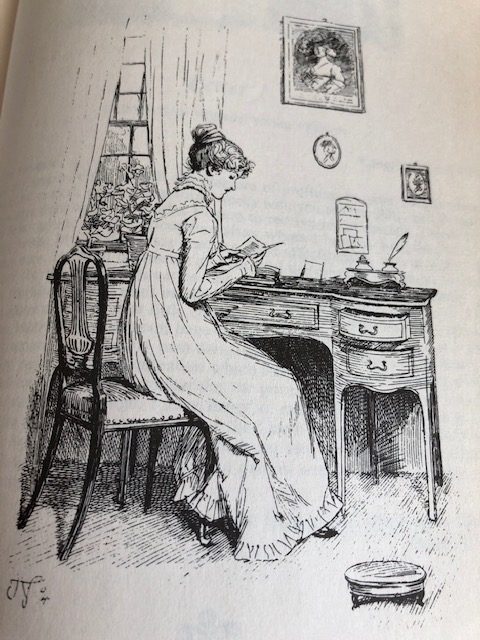During this shut in time I’ve been watching all my Jane Austen movies and reading her novels. Since the 1995 BBC adaption of Pride and Prejudice they have been my go to’s when I want to put myself in another time and place for awhile. I often feel it now. I thought I watched them over the years for the beautiful English countryside and the romance. Yes, those, for sure. Lately I’ve noticed there is much, much more to her stories than romance and happy endings for the heroines. She was a master of articulating the intricacies of human nature. (You can tell I’m reading her–my vocabulary just improved).

All of her characters have strengths. All of them have weaknesses. Austen captures them all with biting wit. She tells her readers straight out as well as showing through dialogue and action what they are like. Sir Walter Eliot in Persuasion: “Vanity was the beginning and end of Sir Walter Eliot’s character: vanity of person and of situation.” I don’t mind being told. Show don’t tell is drummed into an aspiring writer’s head. Never ever tell. Yet Austen does it. Brilliantly. Satisfactorily. I like it.
Sir Walter’s vanity is revealed even more by the dialogue. After a diatribe against those ordinary men who achieve distinction and riches in the navy while ruining their complexions, appearance being the thing that he most prizes, he says: “Then I take it for granted…that his face is about as orange as the cuffs and capes of my livery.” Austen’s greatest wit comes in the telling. Of the Eliot’s reduced circumstances, Austen states: “Both father and daughter seemed to expect that something should be struck out by one or the other to remove their embarrassments and reduce their expenditure, without involving the loss of any indulgence of taste or pride.”
Jane Austen is a master storyteller, getting her characters into hopeless situations where all is looked to be lost and then in unexpected ways, gets them out again and into perfect happiness. Her books read almost like mysteries, as she reveals bit by bit and turn of page. After the satisfying resolution, when the reader learns all and is assured of a beloved character’s happy future, the book does not end. Austen liked to have detailed conversations between the two lovers where they “clear the air,” a play by play concerning all the misunderstandings that had kept them apart. Persuasion again, as Anne Eliot and Captain Wentworth strolled through the streets of Bath, now certain of their union: “…they could indulge in those explanations of what had directly proceeded the present moment, which were so poignant and so ceaseless in interest. All the little variations of the last week were gone through; and of yesterday and to-day there could scarcely be an end.”
At the conclusion of Persuasion, Austen sums up the situation with her biting wit: “Sir Walter, indeed, though he had no affection for Anne, had no vanity flattered, to make him really happy on the occasion, was very far from thinking it a bad match for her. On the contrary, when he saw more of Captain Wentworth, saw him repeatedly by daylight, and eyed him well, he was very much struck by his personal claims, and felt that his superiority of appearance might not be unfairly balanced against her superiority of rank; and all of this, assisted by his well-sounding name, enabled Sir Walter, at last to prepare his pen, with a very good grace, for the insertion of the marriage in the volume of honour.” I almost see Jane tap her pen upon the period at the end of that sentence in great satisfaction, pick up her paper and read it over again.

